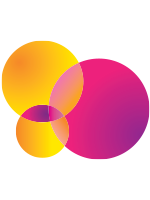Mander, T., MSc.
Smart mobility experiments: the potential to address major (auto)mobility challenges and the role of the state transport manager
Technology, Innovation, and Society, School of Innovation Sciences, Eindhoven University of Technology, [email protected]
Supervisor: Prof. Geert Verbong
Background
The (auto)mobility system faces several challenges, such as congestion, incidents, local air pollution, and CO2 emissions. Scholars in transport studies and transition studies argue incremental innovations alone will not bring the expected solutions. The transport sector’s traditional solutions have reached their limits. An integral focus, combining social and technological measures, is required for innovations to co-evolve towards bigger structural transformation of the (auto)mobility system.
Recently, the buzzword ‘smart mobility’ receives increasing attention. Especially in the field of practitioners it is expected that the convergence of the mobility sector and information and communication technologies will bring solutions for the (auto)mobility system’s challenges. Effort and resources are assigned to ‘smart mobility’ activities to start experimenting. However, actors interpret the concept in various ways, leading to differentiating expectations (e.g. is smart mobility about optimization of traffic flows or about supporting travellers in making the most environmental friendly travel mode choices). Furthermore, it is yet unclear how different smart mobility activities emerge (e.g. do different activities converge and add-up, or do many activities emerge separately in parallel). More insight in these aspects is necessary to understand whether smart mobility activities potentially lead to more radical changes in the (auto)mobility system. In other words, what kind of innovation pathways can be expected considering the nature and maturity of running experiments, and the path dependency and locked-in nature of the current (auto)mobility system. Lastly, different smart mobility solutions might also challenge the role of the state transport manager and the transport ministry. Due to their responsibilities and ownership of valuable resources these actors play crucial roles in the shaping of smart mobility innovations. With Action Research this research not only aims to understand smart mobility activities’ potential, but also advices on how to manage experiments from a state-actor’s perspective.



